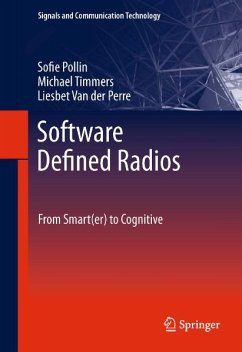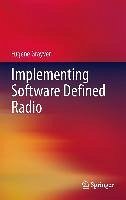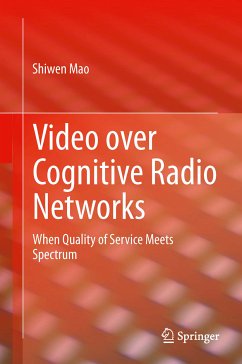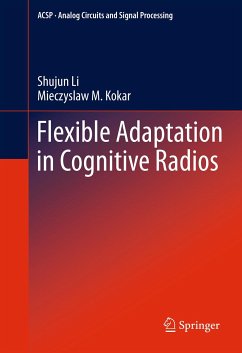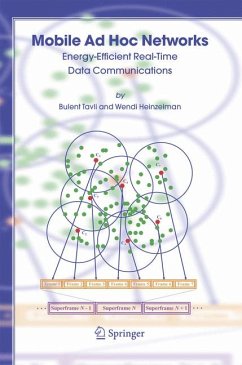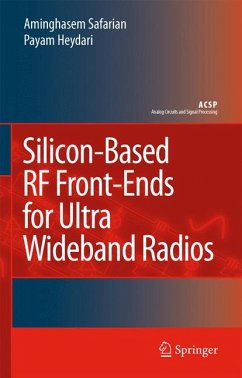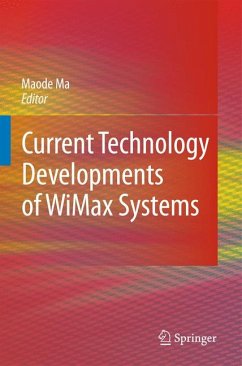
Green Software Defined Radios (eBook, PDF)
Enabling seamless connectivity while saving on hardware and energy
Versandkostenfrei!
Sofort per Download lieferbar
72,95 €
inkl. MwSt.
Weitere Ausgaben:

PAYBACK Punkte
36 °P sammeln!
Green Software De?ned Radios, the title of this book may have originated from a lackofinspiration,andthecombinationofhardwork,jetlag,anddrinkinggreentea. The message we want to convey however, is that SDRs are a promising technology for the future, providing they are designed for ef?cient usage of scarce resources: energy and spectrum. In the last years, the R&D teams focusing on wireless c- munication (around the world and at IMEC speci?cally), have realized great bre- throughs. It is our honor, building on this knowledge, to bring a comprehensive overview of the essential technologies. We ar...
Green Software De?ned Radios, the title of this book may have originated from a lackofinspiration,andthecombinationofhardwork,jetlag,anddrinkinggreentea. The message we want to convey however, is that SDRs are a promising technology for the future, providing they are designed for ef?cient usage of scarce resources: energy and spectrum. In the last years, the R&D teams focusing on wireless c- munication (around the world and at IMEC speci?cally), have realized great bre- throughs. It is our honor, building on this knowledge, to bring a comprehensive overview of the essential technologies. We are grateful that Springer is willing to publish in their collection on radio technologies, a book on green SDRs, a weird species still today, yet maybe the baseline for the day after tomorrow. Dear reader, we wish that you ?nd in the following pages, including the references, some int- esting insights, and that this book may live more or less up to your expectations (and hopefully more than less). Thisbook'sclosingstatesthatthequestforGreenSDRshasnotended,thisisjust the beginning. Concerning this book however, we are happy that today the opposite is true. We want to acknowledge our colleagues at IMEC for their great scienti?c contribution, and even more for the enjoyable cooperation.
Dieser Download kann aus rechtlichen Gründen nur mit Rechnungsadresse in A, B, BG, CY, CZ, D, DK, EW, E, FIN, F, GR, HR, H, IRL, I, LT, L, LR, M, NL, PL, P, R, S, SLO, SK ausgeliefert werden.





